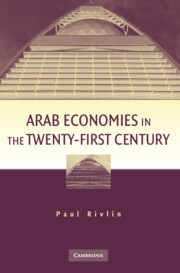6 - Iraq
After Destruction
Published online by Cambridge University Press: 05 June 2012
Summary
Introduction
Five years after the 2003 war, Iraq's prospects for reconstruction and development are bleak. The country is plagued by terrorism that is resulting in the deaths of hundreds of people every week. The three main communities, the Shiʾites, Kurds, and Sunni, have had a very hard time agreeing on political structures that would hold the country together. In this dangerous and confused environment, oil production is much lower than planned, thus limiting the main source of government income. One of the issues dividing the communities is the allocation of oil wealth. Virtually all of Iraq's oil resources are in the Kurdish north of the country, the economy of which is thriving, or in the Shiʾite south. The Sunni, who constitute about 35 percent of the population and who ruled the country under the Baʾath, lost power in 2003 when the United States invaded Iraq. They are now fighting, if not for control, then at least for a share of the oil wealth as well as a share of political power.
Iraq suffers from a number of problems that have their origins in the first half of the twentieth century. The first is the polarization between social classes and ethnic groups: primarily those among the Shiʾa, Sunni, and Kurds. The second is closely related: the polarization of the rulers from the ruled, something that reached its horrific apogee under Saddam Hussein and is currently manifested in the tensions between American occupation forces and many Iraqis.
- Type
- Chapter
- Information
- Arab Economies in the Twenty-First Century , pp. 132 - 154Publisher: Cambridge University PressPrint publication year: 2009



